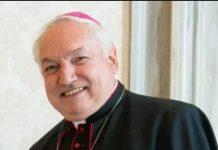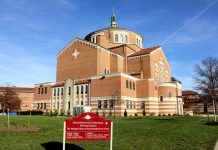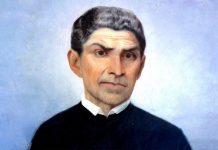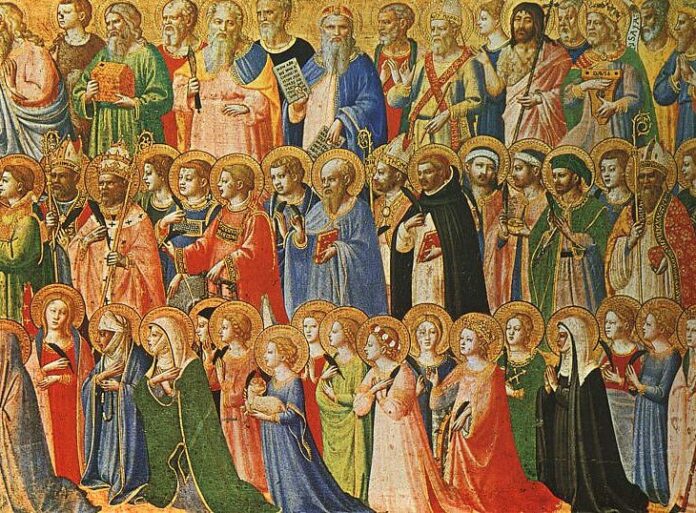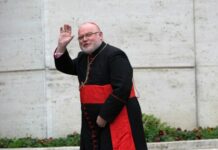A man not only of words, but also of action, St. John Eudes was a passionate apostle of a difficult undertaking: the reform of a clergy that was abandoning its mission. His memory is celebrated on August 19.
News room (29/08/2023 17:14, Gaudium Press) Known as “the saint of Normandy”, John Eudes was born in Ri, near Argentan, on November 14, 1601. His birth – like that of so many providential men, marked by the previous sterility of his parents – was a sign sent by the Blessed Virgin herself, to whom little John had been entrusted.
Bearing an obvious vocation to the priesthood, providence had prepared him from an early age with distinguished gifts of piety and faith. This was needed as John would have to face a stormy future: “Being in a parish where very few people received Holy Communion outside of Easter, I began, around the age of 12, to know God through a special grace of his divine goodness, and to receive Holy Communion every month, after having made a general Confession. It was on the feast of Pentecost that he gave me the grace to make my First Communion. […] Shortly afterwards, he also gave me the grace to consecrate my body to him by the vow of chastity.”[1]
This custom of receiving Communion assiduously was already a manifestation of opposition to the Jansenist tendencies which, at the time, were beginning to penetrate the most fervent Catholic circles.
The Jesuits, still the bearers of great recognition and prestige at the beginning of the 17th century, although persecuted as always, were responsible for John Eudes’ formation. His heart, however, heard the call to another religious path, that of a congregation recently founded in France by Father Bérulle: the Oratory, inspired by the example of Saint Philip Néri.
He was welcomed with open arms. He was a promising young man, with a “robust appearance”[2], a singular genius, an upright heart and the bearer of a mysterious secret of God that sparkled in his discreet gaze. For the Oratorians, he was the future of the congregation.
John Eudes was soon sent to a novitiate in Paris. At the age of 24, he was ordained a priest and was soon able to set an example of how a minister of Jesus Christ should be. The hypothesis that many souls could die without receiving the sacraments because of the plague made this exemplary priest not hesitate for an instant to risk his own life going to the aid of those infected. The plague raged from 1627 to 1631 in France, Savoy, Piedmont and Italy. Only when he received the news that his superior, Father Répichon, had been struck down by the plague, did he suspend his work with those needy souls, and promptly set off to help his superior and three other brothers, who were also victims of the plague.
Clergy forget their mission
But his mission had not yet begun. With great regret, he left the Oratory congregation and set off on the adventure – encouraged by some, persecuted by many others – of founding a seminary to train good priests. He was desolate, even indignant, at the situation of the clergy of his time. He describes it briefly to Daniel-Rops: “Here, low-cut women leaned on the altar during the sacrifice; there, beggars stretched out their hands even in the sacred precincts; further on, children brought to Mass enjoyed their games, and the barking of dogs covered the preachers’ voices. The parish priests found it all very natural: when Alain de Solminihac inspected a church on a pastoral visit, he threw himself on a priest who was cooking in the middle of the presbytery![3]
But these facts are just the tips of icebergs. The upper echelons and the ruling classes did not set an example of virtue for the minors. St. John fearlessly pointed to the cause: “Here we have these poor people in the best of dispositions, but what can we expect when the shepherds who guide them are just as we see them everywhere?”[4]
The foundation of the Congregation of Jesus and Mary
It was necessary to start with the seminary, and John had the courage to do so. “Those whose duty it is to work for the salvation of souls are in danger of losing them.”[5] Faced with this situation, the impetuous zeal of this new Elijah could no longer be expected.
At the same time, St. Vincent de Paul had just opened a seminary and helped him with wise advice. The mystic Marie de Vallées, much discussed to this day, assured him that it was God’s will that a new Congregation be founded.
With five companions, Saint John Eudes opened his seminary and founded the Congregation of Jesus and Mary on March 25, 1643. But, as Ecclesiasticus says, whoever enters the service of God must prepare his soul for trial (cf. Eccl 2:1): Rome put the brakes on the foundation’s request; in Normandy, the bourgeoisie and the clergy in general were strongly opposed. His chapel in Caen was banned and they even thought of arresting him. “More secretly, at a time when Jansenism is in full force, the latter’s supporters, who are to be found everywhere – even in the Oratory – are working against the mystical herald of a doctrine which affirms to the world the goodness of God…”[6].
But against the assaults of men, the Holy Spirit continued to bear fruit in John’s work. His seminary prospered, the Assembly of the Clergy of France sent him congratulations and the bishops successively called him to found seminaries.
Devotion to the Heart of Jesus and Mary
The driving force of his apostolate – the spirituality – was the unprecedented devotion to the Heart of Jesus and Mary. Margaret Mary Alacoque would receive revelations of the Sacred Heart of Jesus shortly afterwards.
For John, the Heart was the seat of divine love, the most adorable Heart, worthy of all reverence, the root of all virtue and the source of all inspiration. For the time, this devotion was much more unknown, and therefore much more daring than we think today. Even more so was devotion to the Heart of Mary, to whom St. John Eudes had honorary feasts celebrated and dedicated lines of love and affection.
The year 1680 saw the glorious death, at the age of 78, of that true patriarch, spiritual father of countless priests of the purest character, fervent formers of new fronts of apostolate.
By Arthur Paz
[1] GEORGES, CJM, Émile. Saint Jean Eudes. Paris: Lethielleux, 1925, p.7.
[2] ROPS, Daniel. The Church of Classical Times. I. The great century of souls. Trad. Henrique Ruas and Emérico da Gama. São Paulo: Quadrante, 2000, p. 82.
[3] Idem, p. 77.
[4] Idem, p. 82.
[5] Idem, p. 76.
[6] Idem, p. 83.
The post São João Eudes, um santo diante de um clero appeared first on Gaudium Press.





